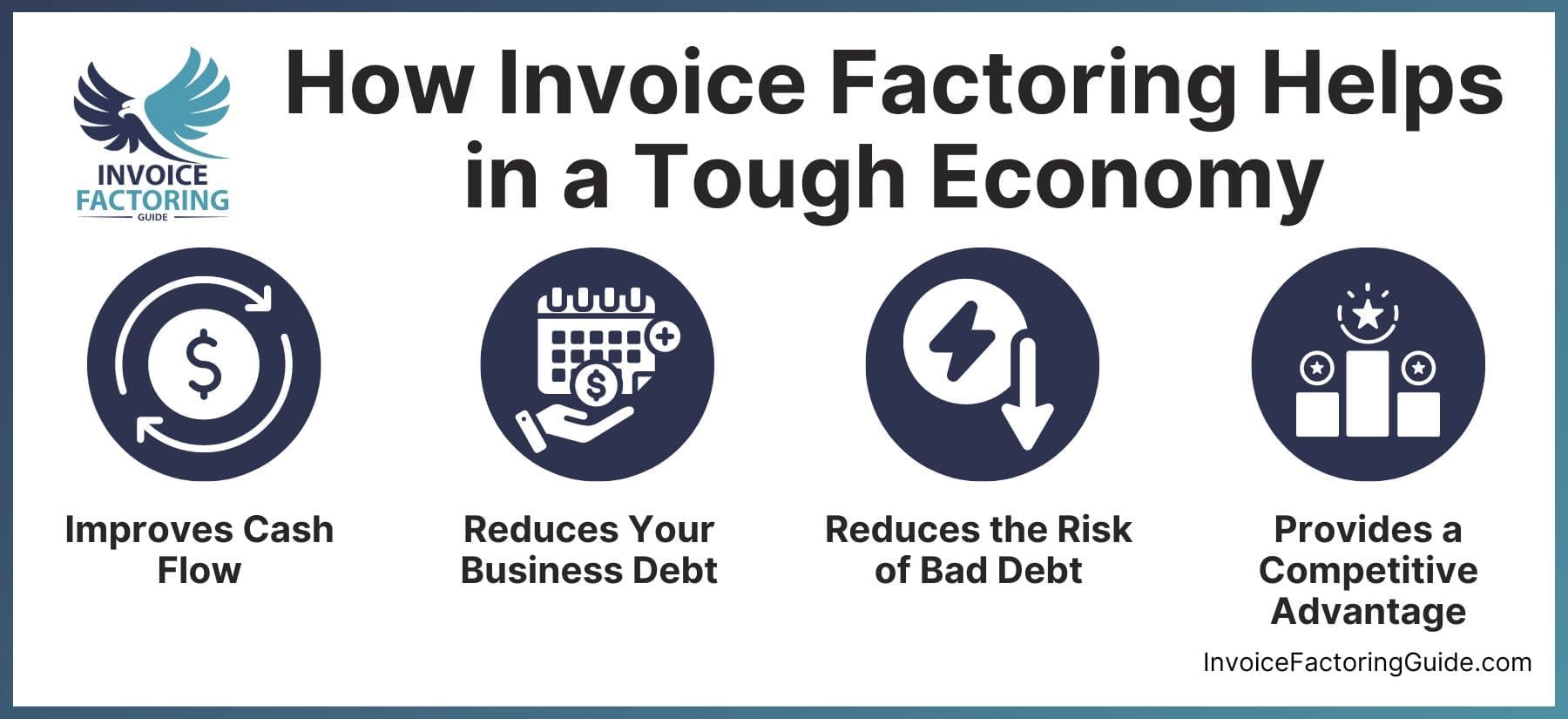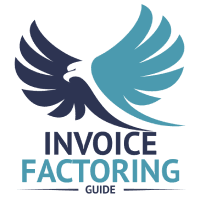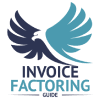
Small business invoice factoring is helpful under lots of different circumstances. However, the advantages to businesses multiply during difficult economic times.
How Tough Economies Impact Businesses
Small businesses are especially vulnerable to the effects of a difficult economy and may be affected by some or all the following issues.
It’s More Difficult to Budget and Stay on Top of Payments
It may go without saying, but budgets are a business essential. They allow you to take control of your finances and ensure you’re not spending more than you can afford and not allowing money that could be used for growth initiatives to collect dust. However, only about one-third of small businesses have a documented budget under ordinary circumstances, according to Clutch. Instead, they play it by ear, spend whatever appears to be available in the business account, or don’t monitor at all.
These practices become more dangerous in a difficult economy because payments tend to come in slower or not at all. Businesses that aren’t prepared for unusual cash flow cycles often wind up short on cash, a problem intensified by a lack of savings or access to funding.
At the very least, falling behind on payments usually means you’ll pay late fees. However, you may also wind up losing discounts or receive penalties like increased interest. It can damage vendor relationships and hurt your credit score, too.
It’s Harder to Make Payroll
When you’re short on cash, making payroll can seem insurmountable. However, failure to pay your employees on time presents legal issues and can cost you your team.
More than two-thirds of employees live paycheck to paycheck, per the American Payroll Association. Roughly the same say it would be difficult or very difficult to meet their financial obligations if their paycheck came even a week late. Nearly half will start looking for a new job after a single paycheck issue, according to Keka.
For businesses in New York, Florida, or Texas, where economic conditions and labor laws can present additional payroll challenges, securing a reliable funding solution can be critical to maintaining operations and retaining employees.
Obtaining Affordable Financing is Difficult
Traditional lenders have historically underserved small businesses. The risk of non-payment is higher, and banks make less off the loans because the amounts are lower, so they focus more on lending to larger companies. The situation becomes even more grim in a tough economy. There’s been a five percent decrease in businesses that report having their funding needs met in the past year alone, according to the Small Business Credit Survey.
Phrases like “lender pullback” and “credit crunch” are being used even more these days, a sign that banks are now lending less across the board and increasing their requirements even more. Already at the bottom of the chain, small businesses bear the brunt.
For businesses in industries like manufacturing, where cash flow gaps can be especially disruptive, invoice factoring can provide immediate access to working capital, allowing companies to maintain stability and keep up with operational expenses.
It’s Easy to Become Buried in High-Interest Debt
Only very large businesses aren’t experiencing a diminished ability to pay off debt, according to Deloitte. Smaller businesses are disproportionately affected. With even less access to affordable funding, many turn to high-interest loans, lines of credit, and expensive funding solutions such as merchant cash advances.
Unfortunately, many cannot pay much more than monthly fees and interest. That leaves them trapped in a cycle of debt that may be impossible to climb out of.
Small Business Closures Increase
Around 1.8 million small businesses closed due to the 2008 recession, Investopedia reports. While final tallies from COVID vary, nearly 100,000 permanently closed in the early months of the pandemic alone, Yelp reports.
How Small Business Invoice Factoring Helps in a Tough Economy
While there are many alternative business financing options, factoring is unique because it can help you navigate a tough economy and come out stronger in the end.
Your Cash Flow Improves
 Eight in ten small business closures are tied to poor cash flow management, according to the National Federation of Independent Business (NFIB). It’s one of the leading reasons for business failure because cash flow issues can be caused by a multitude of things and influence many areas of your business, too. For instance, it becomes difficult to budget if you don’t have predictable cash flow.
Eight in ten small business closures are tied to poor cash flow management, according to the National Federation of Independent Business (NFIB). It’s one of the leading reasons for business failure because cash flow issues can be caused by a multitude of things and influence many areas of your business, too. For instance, it becomes difficult to budget if you don’t have predictable cash flow.
Something as simple as having slow-paying customers can prevent steady cash flow. Factoring addresses this in two key ways. First, the credit checks performed help ensure customers are likely to pay in full and on time. Secondly, it accelerates payment on your accounts receivable. That way, even if you have an outstanding invoice past its deadline, your business isn’t impacted. You already have the cash for it. Moreover, businesses with regular and strong cash flow can more easily predict how much working capital they’ll have at any given time and can spend accordingly.
You May Have Less Debt
Many businesses that lack predictable and healthy cash flow have trouble meeting their financial obligations. The symptoms can seem small at first. For instance, the business may hold off on making certain payments and accrue late fees. Or, they may start leveraging credit cards and lines of credit to bridge cash flow gaps. However, these are expensive ways to address the problem and often make it harder for the business to get ahead.
Factoring doesn’t create debt like these other financial solutions, making businesses less likely to go into debt. Because it provides a cash injection, making it easier for businesses to keep up with their current debt payments.
The Risk of Bad Debt Reduces
On average, 1.5 percent of receivables become bad debt, according to TSI. This can easily add up to tens of thousands of dollars annually or more for a small business. The risk increases in an economic downturn. The best way to reduce it is only to extend credit to creditworthy customers and to limit the amount you extend based on their ability to pay their debt. Most small businesses aren’t proactive in this sense and may see higher rates of bad debt depending on their customer base. When you work with a factoring company, however, they’ll run the credit checks for you and keep you informed about how much credit can be extended to clients without taking on unnecessary risk.
You Can Gain a Competitive Advantage
If all things are similar between two businesses going into an economic downturn, but one seeks out $100,000 in additional business funding to deal with everyday expenses and the other does not, the one that emerges debt-free is in a stronger position. Factoring makes this possible.
Moreover, it’s easier and quicker to get approved for factoring than most other types of funding. Businesses get their cash immediately instead of waiting weeks or months. Because of this, companies that leverage factoring are in a better position to seize business opportunities as they arise.
Those who gain a competitive advantage during difficult economic times often see business growth rather than the declines their peers see, and they maintain and improve on that edge moving forward.

Get a Small Business Invoice Factoring Rate Quote Free
Invoice factoring is flexible. You can factor some or all your invoices. You can set up your factoring account and use it immediately or not until you need to. This makes it easy to stay in control of your finances and ensure that your business has options if needed. Request a complimentary rate quote to learn more or get started.

About Invoice Factoring Guide
Related Articles
Get an instant funding estimate
Results are estimates based on the calculated rate and the total invoice amount provided.
Actual rates may vary.
Request a Factoring Rate Quote
PREFER TO TALK? Call us at 1-844-887-0300










